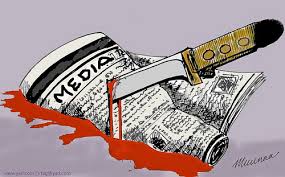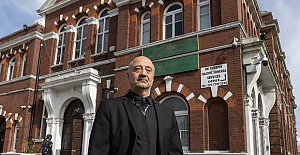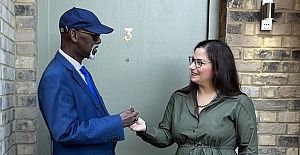
Posted by jonathanfryer
A useful briefing on the European Parliament’s recent resolution on standards of media freedom across the EU, from David Geary of the European Movement UK:
The European Parliament adopted recently a resolution on standards for media freedom across the EU. In the context of recent debates in this area from media ethics to political collusion to the debate about privacy and the fallout from the Levenson Inquiry, this resolution is both timely and relevant.
The resolution on the EU Charter: standard settings for media freedom across the EU, was passed 539 votes to 70 (with 78 abstentions). The Rapporteur was Romanian Liberal Democrat MEP, Renate Weber. The text calls for the governments of all member states to ensure that threats to media freedom, such as attempts to influence, pressurise or otherwise interfere with the view of restricting the ability of the media to function freely within a state, are prohibited. It also suggest that legal mechanisms must be established to ensure that senior appointments to public media organisations safeguard that candidates selected are best enabled to maintain the independent integrity of the respective media organisations. The text covers both public and private media, because both outlets play their own significant role in society and seeks to make sure that both are provided with the same rights, such as those derived from the media plurality clause of the Charter on Fundamental Rights. The Parliament calls for full implementation of the rights established under this Charter.
Acknowledging current challenges to media freedom, especially in cases where governments have cited security concerns, the Parliament requests that such moves should not be abused or used to exercise a degree of political control over the media. Bureaucratic processes such as broadcast licensing were also identified as potential areas of concern which might be manipulated to limit access to the media market for political or partisan reasons. The Parliament requests that both the Commission and Member States take action to address and prevent dominant positions by establishing lower competition thresholds in the media industry than in other markets. The European Parliament establishes two factors which give rise to a dominant position within a media market. First is the ability to benefit from monopoly pricing power. Secondly, the ability to benefit from political influence, especially when that influence creates the opportunity to implement regulatory practices and changes which can offer a competitive advantage. Both characteristics of a dominant media power make it difficult to combat or regulate and the European Parliament identifies this as a critical issue for member states to address. In accordance with previous requests on the Commission to establish a legislative framework governing media ownership, Parliament once again calls for a set of concrete measures to provide a legal oversight to media ownership, establishing minimum standards for Member States.
The independence of journalists is at the centre of the European Parliament’s effort to protect medial plurality. Noting that journalistic independence requires that journalists must not be prevented from accessing public documents and information, Parliament calls on Member States to establish a comprehensive legal framework protecting and promoting freedom of information requests. Alongside access to public information, Parliament notes that true journalistic independence cannot be achieved as long as members of the security services of Member States infiltrate the offices of public and private media organisations. Parliament calls on Member States to stop such activity. The Parliament also notes the effect of poor working conditions and the lack of security of tenure can have on journalistic independence. So it calls for regulation in this area as well as safeguarding journalists from undue pressure from publishers or owners.
Parliament identified the need for promoting ethical journalism and the establishment of professional standards for ethics and conduct, notably the obligation to identify the difference between a fact and an opinion, to ensure that the accurate, impartial and objective media content becomes the standard by which media organisations are assessed. Parliament calls for the establishment of a regulatory authority independent from government which can ensure compliance with standards and ethical codes and provide an avenue to consider complaints from affected parties.
Having the entire range of media operating across the EU in mind, the European Parliament considered developing standards for social media and internet based media providers alongside the more traditional print and broadcast media. In addressing online media, Parliament called for the Commission to include internet media operators in the EU Regulatory framework when the time comes to revise the Audio-visual Media Services Directive.
The importance of monitoring media freedom in the Member States is of critical importance and the European Parliament called on the Commission, the Fundamental Rights Agency and/or the EU Centre for Media Pluralism and Media Freedom to publish an annual report on media freedom, which would then be presented to both Parliament and the EU Council for their consideration and with the intention of having the two co-legislators make proposals to follow this report.
David Geary
European Movement policy officer
Link: http://www.euromove.org.uk




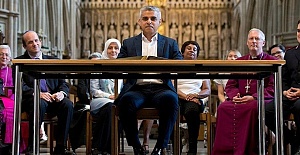 The candidates vying to be the next London mayor
The candidates vying to be the next London mayor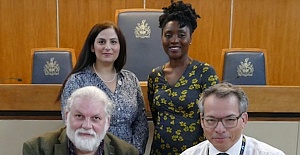 Enfield Council commits to anti-racism and diversity pledge
Enfield Council commits to anti-racism and diversity pledge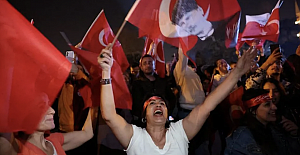 President Erdogan promised supporters his party would learn its lessons from the defeat
President Erdogan promised supporters his party would learn its lessons from the defeat Mayor of London and London Assembly elections
Mayor of London and London Assembly elections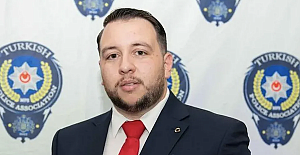 Off duty Police sergeant Eren Emin catch suspected thief while on stag do
Off duty Police sergeant Eren Emin catch suspected thief while on stag do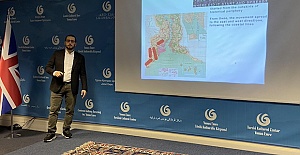 A Century of Urban Transformation, Istanbul’s Evolution
A Century of Urban Transformation, Istanbul’s Evolution Future Painters Exhibition at Tottenham Hotspur Stadium
Future Painters Exhibition at Tottenham Hotspur Stadium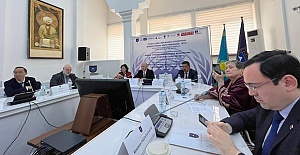 Models of Teaching International Journalism for Sustainable Development
Models of Teaching International Journalism for Sustainable Development English Premier League leaders Arsenal will visit title contenders
English Premier League leaders Arsenal will visit title contenders Liverpool meet Atalanta and West Ham face Bayer Leverkusen
Liverpool meet Atalanta and West Ham face Bayer Leverkusen Arsenal face Bayern Munich and Manchester City play Real Madrid
Arsenal face Bayern Munich and Manchester City play Real Madrid UK Transfer deadline day, the transfer window closes tonight
UK Transfer deadline day, the transfer window closes tonight Petrol prices on UK forecourts hit 150p a litre
Petrol prices on UK forecourts hit 150p a litre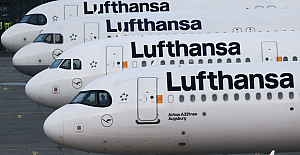 Europe's travel strikes: Flight and train disruption you can expect in April
Europe's travel strikes: Flight and train disruption you can expect in April Enfield Council website achieves digital inclusion recognition
Enfield Council website achieves digital inclusion recognition Enfield Council’s Planning Enforcement team goes from strength to strength
Enfield Council’s Planning Enforcement team goes from strength to strength




